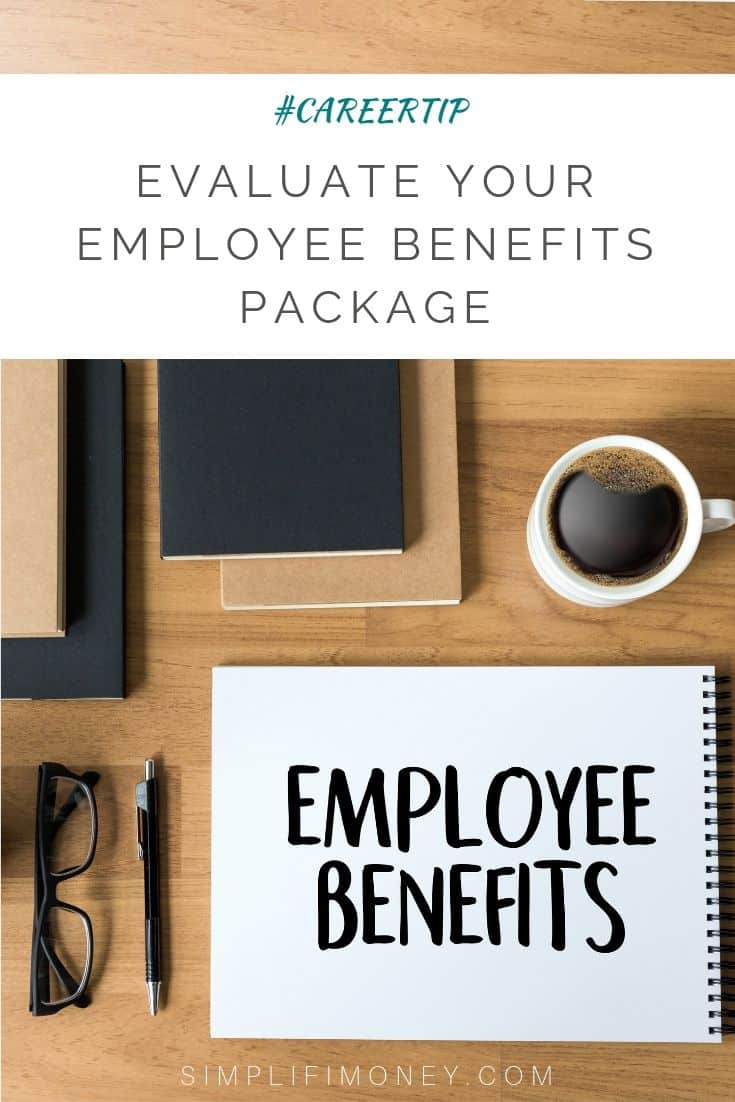By the time you receive a job offer, you have likely already gone through a lengthy process to get there.
You may have been searching for a while (unless you were referred or recruited). You’ve researched the company. You’ve updated and fine-tuned your resume. You’ve interviewed—which can be a long and emotionally-involved process, depending on how many rounds of interviews you go through. You’ve evaluated company culture, your potential boss, the team, the role and the career potential.
So when you finally get that offer, your first instinct might be to jump for joy, sign on the dotted line and lock that bad boy down.
Before you do, however, make sure you fully evaluate your employee benefits package with the same level of effort that you did the job itself so that you know exactly what the company is providing and what they are not.
What does a benefits package include?
When you evaluate your employee benefits package, you will consider your salary, of course. According to the Bureau of Labor Statistics, your salary accounts for 70% of your compensation.
The remaining 30% of your compensation comes from other benefits like health insurance, health spending accounts (HSAs), dental plans, vision care, life insurance, stock options, retirement plans, paid time off and paid holidays, among others.
Health Insurance
This is a big one. Yes, health insurance is required by law these days, but irrespective of what law mandates, health insurance is non-negotiable for savvy women (and men) who want to protect their financial futures. Two-thirds of people who file for bankruptcy do so as a result of medical issues. Debilitating injuries and crippling diagnoses come without warning. Without health insurance, you open yourself up for a financial crisis on top of your health situation.
When you evaluate your benefits package, you’ll want to know 1) does your employer offer health insurance 2) if yes, what portion of your premiums your company will pay for, and what portion you will be responsible for.
Today, companies with 50+ employees are required by law to offer health insurance to their employees or else pay a tax penalty. If your employer does not offer health insurance, make sure you understand the out-of-pocket costs you will incur for an individual plan. Learn more at HealthCare.gov.
Dental Plans
Dental insurance does not, unfortunately, fall under health insurance. Ask if your employer offers dental plans, and what portion, if any, they cover.
Vision Care
Similar to dental insurance, vision care is not required by law, and it does not fall under standard health insurance plans. If you wear glasses or contacts, ask if vision care is part of your benefits package, and what sorts of things it covers.
Life Insurance
Life insurance is optional for employees to offer. If you have another person who depends on you for financial support, it’s crucial for you to have life insurance, regardless if it’s employee-sponsored or not.
If you do not have any dependents who rely on you financially, life insurance isn’t a necessity. That said, if your company offers it at no cost to you, sign up for it and list your closest family member as the beneficiary. There is no downside.
Disability Insurance
If you become unable to work because of a disability or illness, disability insurance replaces, on average, up to 60% of your income.
Some states mandate disability insurance for employers. Some do not. Ask your employer if this is included in your benefits package.
Stock Options / Profit Sharing
Stock options may be offered to you as a retention incentive (ie. you get X shares of stock vested over a period of X months/years), through an employee stock purchase plan, or a performance bonus.
Some companies offer profit sharing for employees to receive a percentage of a company’s profits, tax-deferred.
With these types of plans, the better your company performs, the more potential payout for you. You can factor these options and grants in your investment portfolio and as a part of your overall net worth.
Retirement Plans
Not all companies offer retirement plans like the 401(k) or 403(b), but if your employer does offer one, you will want to take advantage of this tax-deferred savings option.
And if your company offers a matching contribution, this is essentially “free money” for you, so make sure you contribute to your plan and don’t leave this “free money” on the table.
Personal Leave
If you are lucky, you might join a company that is part of a growing trend of those offering unlimited vacation days. For the rest of us, the average for salaried positions in the U.S. is to receive 10 paid vacation days after 1 year of service with a company.
Sick Days
If you get the flu, a debilitating migraine, or any number of health-related issues, you want to know you are in a position to take care of your health and well-being, as needed.
Dragging yourself into the office when you’re ill is no act of heroics. You are probably not going to be effective with your mind preoccupied on your own discomfort, and if you have a contagious illness, you risk spreading it with others.
Some companies give employees a bucket of Paid-Time-Off (PTO) days, that can be used for personal and/or sick.
Check what the company policy is so you can effectively plan your vacation schedule, family trips, medical appointments, overall mental health and so that you know what is allowable in times of sickness.
Paid Holidays
With salaried position, we have come to expect that we will receive a certain number of paid holidays each year. Paid holidays are not required by law; however, any company that didn’t offer them would have a hard time recruiting talent as they have become the norm.
BLS reports that, on average, private industry workers in the U.S. receive 8-9 paid holidays each year, depending on the industry. Some companies offer more. Some offer less. Don’t assume you’ll get certain days off. Ask in advance.
Benefits required by federal or state law
Federal or state law requires employers to offer the following benefits:
- Unemployment insurance
- Workers compensation
- Minimum wage
- Overtime pay for non-exempt employees (salaried employees are exempt)
- COBRA (for employers with 20+ employees)
- Family and Medical Leave Act (for employers with 50+ employees)
Other benefits and perks
Companies are getting more creative with their benefits packages these days in order to compete for the brightest talent available.
Other fun perks that companies may offer include phone reimbursement, fitness centers, childcare, free lunches, remote-working, professional development, sabbatical leave, and commuter benefits to name a few. Just ask!
Understanding your benefits package
When you evaluate your employee benefits package as part of a job offer, ask your potential employer to provide a written offer that includes not only salary but all other benefits in order to eliminate ambiguity or assumptions when it comes to your compensation package. You do not want to leave this open for misinterpretation.
You don’t have to wait until you are looking for a new job to put this information to use. Calculate your current benefits package to know exactly where you stand today.





